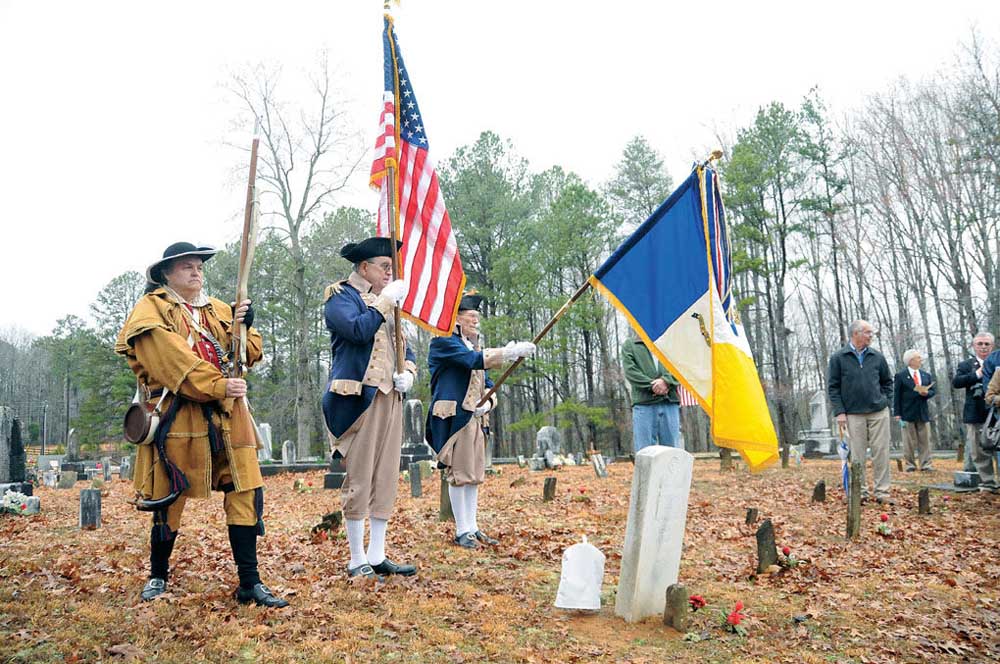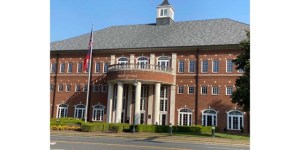Revolutionary War hero’s memory lives on in Gordon County cemetery
Published 4:54 am Sunday, March 6, 2011

- Members of the Georgia Society Color Guard stand at attention during the dedication of the SAR grave marker Saturday. Matt Hamilton/The Daily Citizen
Around 1854, when he was 99, William Coggin decided to finally apply for a $7-a-year pension that was due him as a solider in the American Revolution.
Trending
“He had a second wife by then. She wasn’t a young woman, but she was considerably younger than him. His health was beginning to go down, and he wanted to make sure that he could provide for her,” said Cynthia Nason, a resident of Dothan, Ala., and descendent of Coggin’s family.
Why didn’t he apply before that? Why did he wait almost 70 years after the end of the American Revolution to claim his pension?
“His attitude was that he fought for his country, not for money,” said Ed Walraven, vice president of the Rome chapter of the Sons of the American Revolution (SAR).
Dozens of people from across Georgia and Alabama gathered Saturday at the East Damascus Cemetery in northeast Gordon County to witness the SAR dedicate a marker at Coggin’s grave.
Coggin was born in South Carolina in 1755 and died in Georgia in 1862 at the age of 107, making him one of the last soldiers from the American Revolution.
“The last American solider from the Revolution died in 1869,” said Walraven.
Trending
Coggin, who rose to the rank of lieutenant, fought across South Carolina, including the Siege of Ninety Six and the Battle of Rocky Mount as well as seeing action at Four Holes and Orangeburg.
Coggin served for a time under Col. Thomas Sumter, who was called the Carolina Gamecock because of his small size and fighting spirit. Coggin’s descendent Deacon Balliew said that family history has it that Coggin was also a small man with a fierce disposition.
As the 8th Regiment Drum and Fife Band played, an SAR color guard in period costumes led the way to Coggin’s grave, where the new marker was unveiled.
Brandy Carpenter, a descendent of Coggin, says she did not know he had served in the American Revolution until she found out about the SAR’s plans to honor him.
Carpenter’s husband is currently in the U.S. Marine Corps.
“As the wife of someone serving in the military, it’s very important to me to honor those who have served,” she said. “I am very glad they did this, and it makes me want to go back and learn more about my ancestors.”
Balliew made the audience laugh several times with stories about Coggin’s feistiness, which were passed down to him by his grandmother.
“He loved to walk. He was walking up until the day before he died. He walked all over the area. He probably walked this very road many times,” he said.





